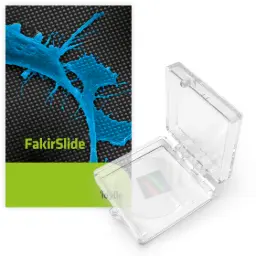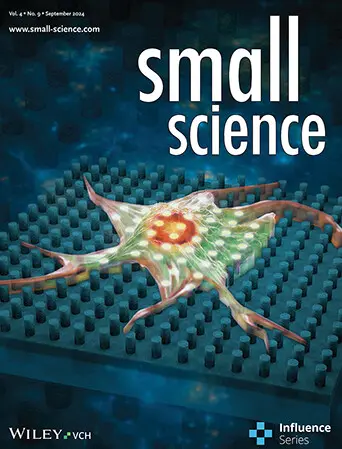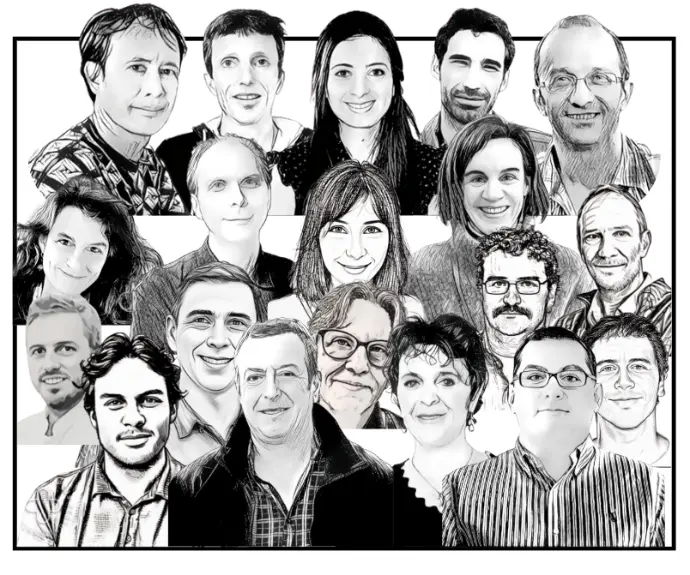
Who is Adrien Carretero ?
Adrien Carretero is a senior scientist specialized in the design and application of advanced nanostructures for electronics. Leading a research group at l'IES, (Institut de électronique et systèmes) in Montpellier, Adrien’s work focuses on bridging the gap between physics and biology to explore the mechanics of cellular behavior. His expertise in microfabrication and nanostructuring has been instrumental in developing tools that enhance our understanding of cell deformation and responses to external stimuli.
Adrien’s journey reflects his relentless drive to innovate, bringing physics-inspired approaches into life sciences. His collaboration with Laura Picas, a cell biologist, has been pivotal in applying his work to biological contexts, leading to advancements in cellular imaging and analysis. FakirSlide, one of his key innovations, stands as a testament to this interdisciplinary vision.
Understanding the forces shaping cell deformation on rigid surfaces
The idea for FakirSlide emerged from a simple yet profound question: how can we better understand the mechanisms shaping cell membrane deformation? Adrien and his team sought to create an environment that could replicate these deformations at the nanoscale. The answer lay in engineering intricate, nanometric motifs on glass, a material that could interact with cells without compromising their viability.
Through a series of iterative designs and experiments, the team perfected a method to etch precise patterns into glass coverslips. These nanostructured motifs mimic a microscopic “bed of nails,” offering a platform for studying cellular mechanics and membrane behavior with unprecedented clarity.
FakirSlide: The nano-precision tool for cell biology
FakirSlide is not just another glass coverslip, it’s a revolution in cell culture and imaging. Its nanostructured glass surface allows researchers to observe how cells deform, stretch, and react to mechanical stimuli. Thanks to the properties of glass, the deformations applied to the cells are highly robust and reproducible, providing a level of precision that other materials cannot match. With applications ranging from studying isolated membranes to probing cellular adhesion and morphology, FakirSlide opens new doors in cell mechanics research.
Additionally, the method they have developed allows for the generation of highly diverse patterns (nano-cones, nano-domes, squares, circles, etc.) to study a wide range of mechanical stimuli. Whether you are exploring cancer cell migration, immune response, or biomaterial interactions, FakirSlide provides a reliable and innovative solution. It is compatible with high-resolution microscopy techniques, ensuring precise and reproducible data for cutting-edge research.
A New Era for cellular mechanics research
Join the growing community of scientists leveraging this nanostructured innovation to decode the mysteries of cellular behavior.

Adrien Carretero's FakirSlide publication
2020 | Micro/Nanostructure Engineering of Epitaxial Piezoelectric α-Quartz Thin Films on SiliconQianzhe Zhang, David Sánchez-Fuentes, Rudy Desgarceaux, Pau Escofet-Majoral, Judith Oró-soler, Jaume Gázquez, Guilhem Larrieu, Benoit Charlot, Andrés Gómez, Martí Gich, and Adrián Carretero-Genevrier. ACS Applied Materials & Interfaces 2020 12 (4), 4732-4740DOI: 10.1021/acsami.9b18555

